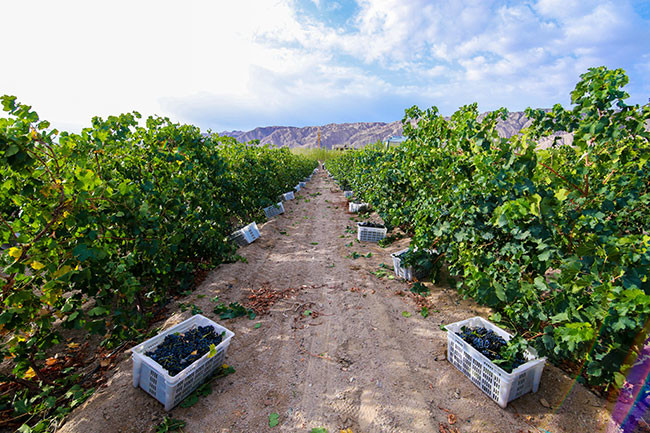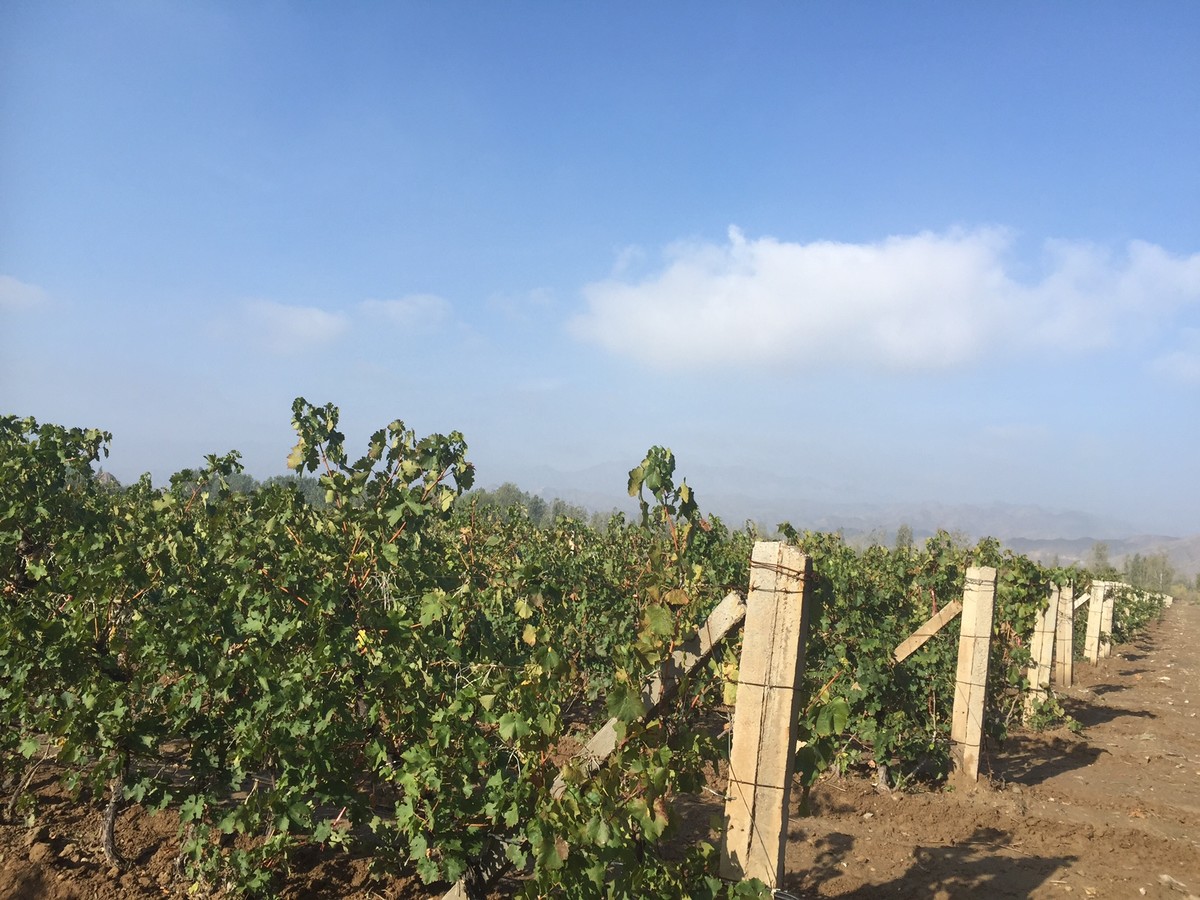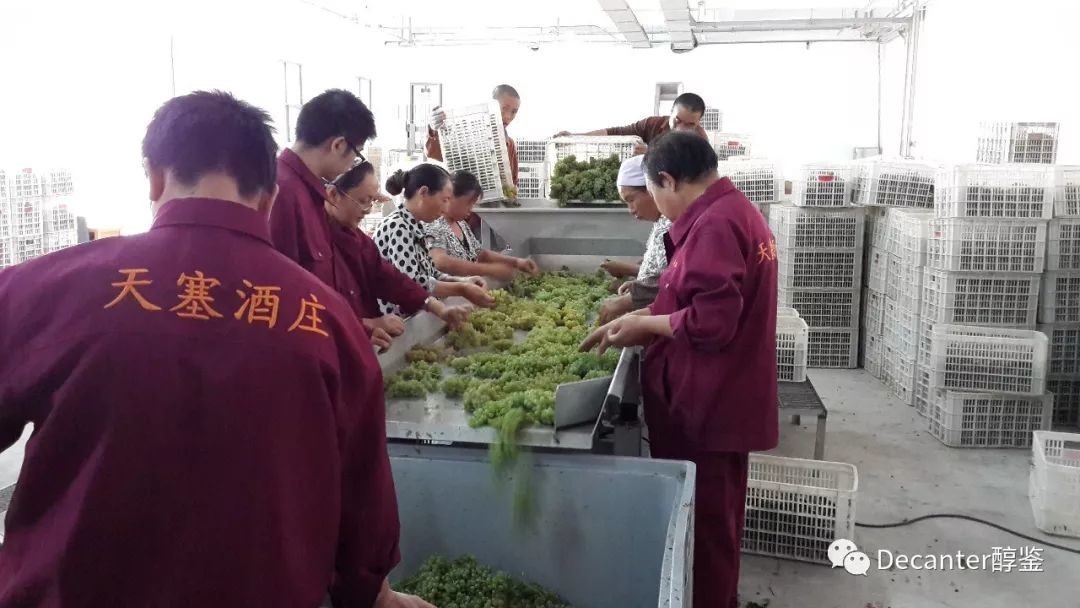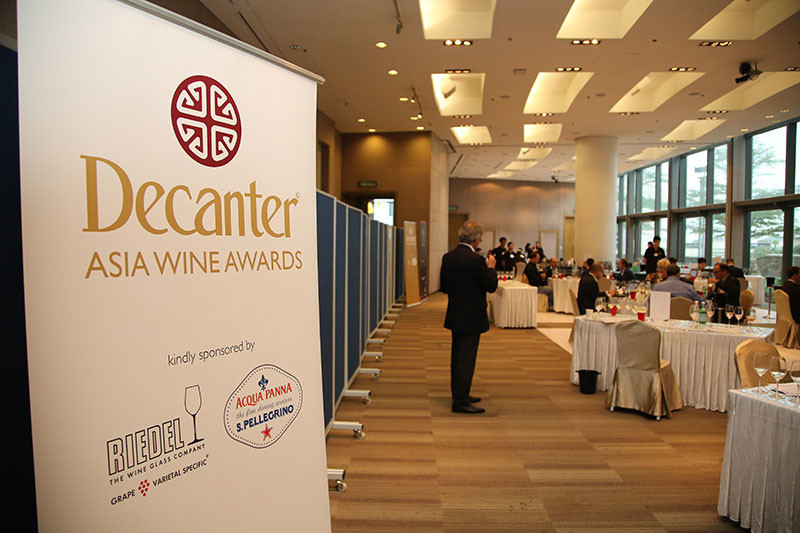Demei's View - Wine Communication from a Chinese Winemaker
When we speak of Xinjiang, grapes are the first thing that springs to mind for most people.
Raisins from Xinjiang can bring great joy to a child; a song entitled The Grapes at Turpan are Ripe was popular across the whole country.
Shiji (also known as The Records of the Grand Historian, written from 104 to 91 BC by Chinese historian Sima Qian of the Han Dynasty), recorded winemaking in the country of Dayuan (Ferghana valley in Central Asia), and is considered the earliest written record of wine in Chinese.
In the same period of Shiji, local residents at Yanqi (also known as Karasahr or Karashahr), an ancient country located on the midline of the middle route of the Silk Road, started growing grapes. And just 15 years ago, new investors arrived at the vast Gobi Desert, began to plant grapes and make wines. As you can see, Xinjiang is very much an ancient yet young winemaking region.

At the end of last year, I was working with Andrew Caillard MW and CH'NG Poh Tiong, compiling the cabin wine list for Hainan Airlines, when I talked about the first year of harvest and winemaking at the Skyline of Gobi Vineyards where I am consulting. They showed great interest in visiting the vineyard since they had been to Turpan with me in separate trips, and already had a profound impression of Xinjiang.
In fact it was not just them; I also fell in love with the mountains, the rivers, the customs of Xinjiang and its potential of grape growing since my first trip in August 2008. Thus, I have visited there more than 50 times in the past five years.

We finally had our trip in the last week of July, the best season in Xinjiang, together with another seven wine journalists and independent writers from Beijing, Shanghai and Guangzhou.
On the evening of 29 July, the 11 of us started our journey from four different airports in three cities, flying to Korla, the closest city from the vineyard, and the biggest city in Southern Xinjiang. It took us a day to get there – this is the best evident of how distant Xinjiang is!
After a good night’s rest, we were pleased to find the weather was beautiful the next day. Everyone was taking photos of the blue sky and white clouds, and sharing it with their friends on Weibo and WeChat – a stunning blue sky was rare to see in their cities.
It takes ‘only’ an hour’s drive from Korla to the Skyline of Gobi Vineyards. Different people have different reaction to this description of distance. As for Poh Tiong, an hour’s drive is enough to cross half of Singapore! In Xinjiang, I often heard people saying ‘it is not far at all, just five to six hours’ drive’.
Established in 2009, the Skyline of Gobi Vineyards is located in the Yanqi Basin to the southern foot of Tianshan Mountain.
The high terrain on the northwest and low terrain on the southeast comes with mountain ranges at to north and the west. One of Xinjiang’s eight biggest rivers, the Kaidu River, lies to the east, and the Kongque River passes by the south, with wide tracts of marsh in the middle.
From the basin to the southeast, there sits the largest inland freshwater lake, the Lake Bosten. This is a place with abundant natural resources, rich historical relics and places of interest, as well as an attractive tourist destination. The unique and excellent natural conditions are home to residents from over 20 ethnic groups.

The Skyline Vineyards has 2,000 mu (1 mu equals 0.0667 hectares) vineyards. Cabernet Sauvignon, Merlot, Cabernet Franc, Syrah and Chardonnay are bcurrently planting for the first phase.
The weathered gravel soil from Mesozoic and Cenozoic continental sedimentation has good aeration and drainage.
This region has a typical temperate drought desert climate, and with regulation by the Bosten water area, the temperature does not have severe variations.
The sunshine duration in this area is quite long, which reaches 4,440 hours/year and brings plentiful warmth. The average frost-free season lasts around 176 days every year, and the precipitation is 74 mm, bringing dry air in the vineyard. The grapes here hardly have any disease, so there is no need to use any pesticide. Moreover, it is possible to manually control the water supply to the vineyard with the abundance of surface water.
In the vineyards that used to be Gobi Desert, crops are unable to survive, but now it is all covered with green. Ms CHEN Lizhong, the owner of the vineyard told us that they are keen to grow organic grapes, and they would rather invest more money to hire people to catch pests and worms instead of using pesticides whilst working on the pest control in the shelterbelt around the vineyards.

The vine training system in the vineyards has been transformed in order to be able to cover the vines with soil during the winter. They’ve also invested in the research and development of agricultural tools that suit the local conditions, and maximised the possibility of mechanised operations. Because of the extremely barren soil at the Gobi Desert, Skyline also developed a special machine for deep fertilisation of organic manure.
Xinjiang has vast a territory and abundant resources, but a lack of a labour force. Therefore, the project needs to recruit labour from other provinces.
Skyline Vineyards built comfortable accommodations with complete living facilities for the farmers who came to work in the vineyards.
There are also private plots around the accommodations for the farmers to grow vegetables and raise poultry, so they can have a similar lifestyle to their hometown, and do not feel like they are simply coming here to work for a living.
‘What we are trying to achieve is to make my staff happy. The quality of their work would be guaranteed only when they feel happy, and that will affect the quality of the grapes,’ Ms Chen, an elegant and wise lady, explained to us.

After the visiting the winemaking facilities and the boutique hotel under the final decoration, we sit down and began tasting the wines. The hot and dry weather in 2012 had brought favourable conditions for the ripeness. The winery decided the harvest date based on the strict observation of fruit maturity, and had fully hand harvested. There were six wines for us to taste: Chardonnay 2012, Cabernet Sauvignon Rose 2012, Merlot 2012, Cabernet Sauvignon 2012, Cabernet Sauvignon Selection 2012 and Cabernet Sauvignon Reserve 2012.
The comments from the guest are like this: the wines are typical of their grape varieties and well balanced, there is still a bit of immaturity, but the wines are clean and elegant, especially the rose which is not available in the market yet.
Considering most people in the group had never been to Xinjiang before, the hospitable host arranged a three-day tour for us to explore the local sceneries and customs. There were a lot of surprises along the trip, and best of all, everyone received an album of the trip on the last day!
Translated by Nina Fan Feng / 冯帆
All rights reserved by Future plc. No part of this publication may be reproduced, distributed or transmitted in any form or by any means without the prior written permission of Decanter.
Only Official Media Partners (see About us) of DecanterChina.com may republish part of the content from the site without prior permission under strict Terms & Conditions. Contact china@decanter.com to learn about how to become an Official Media Partner of DecanterChina.com.











Comments
Submit